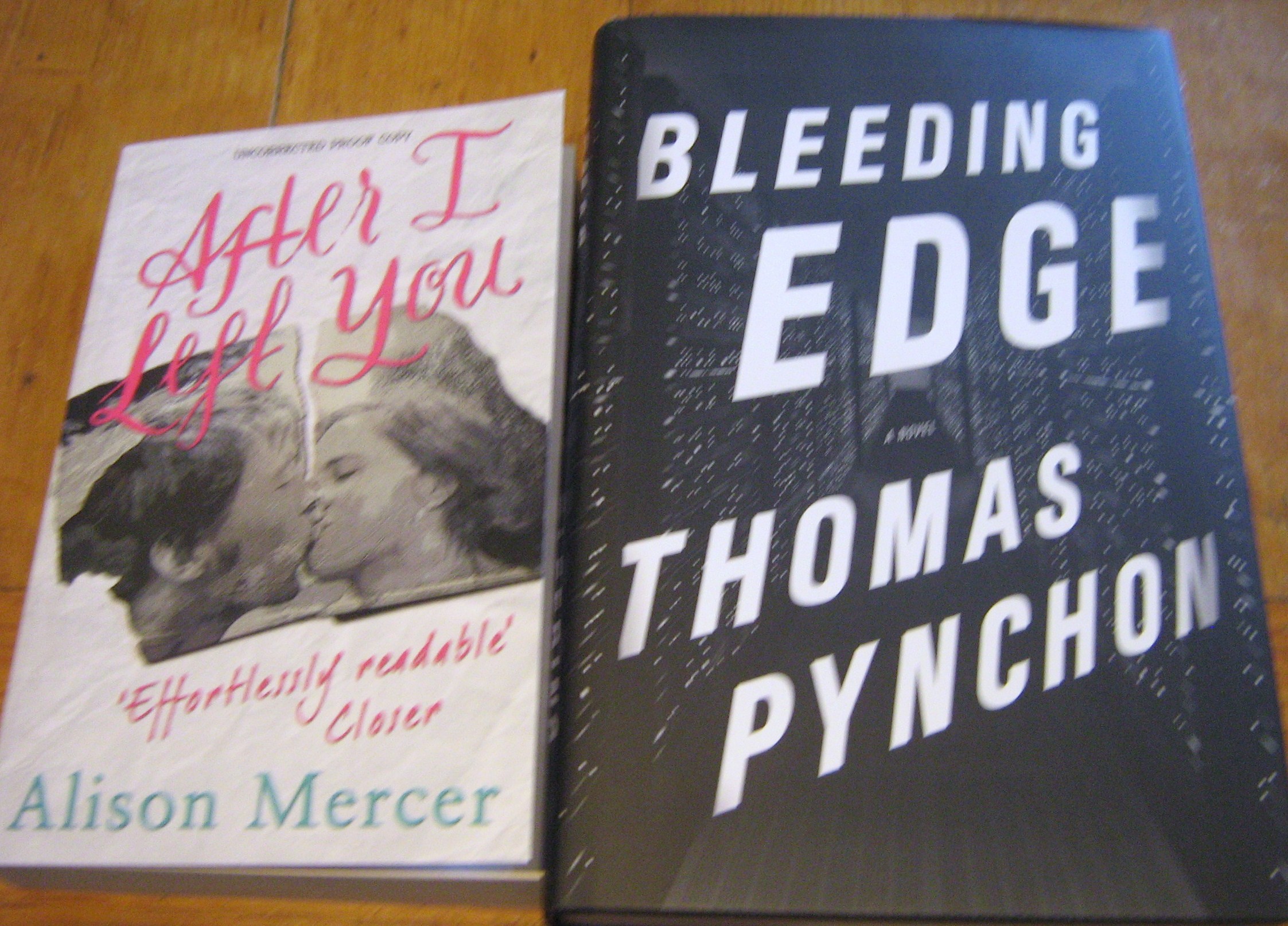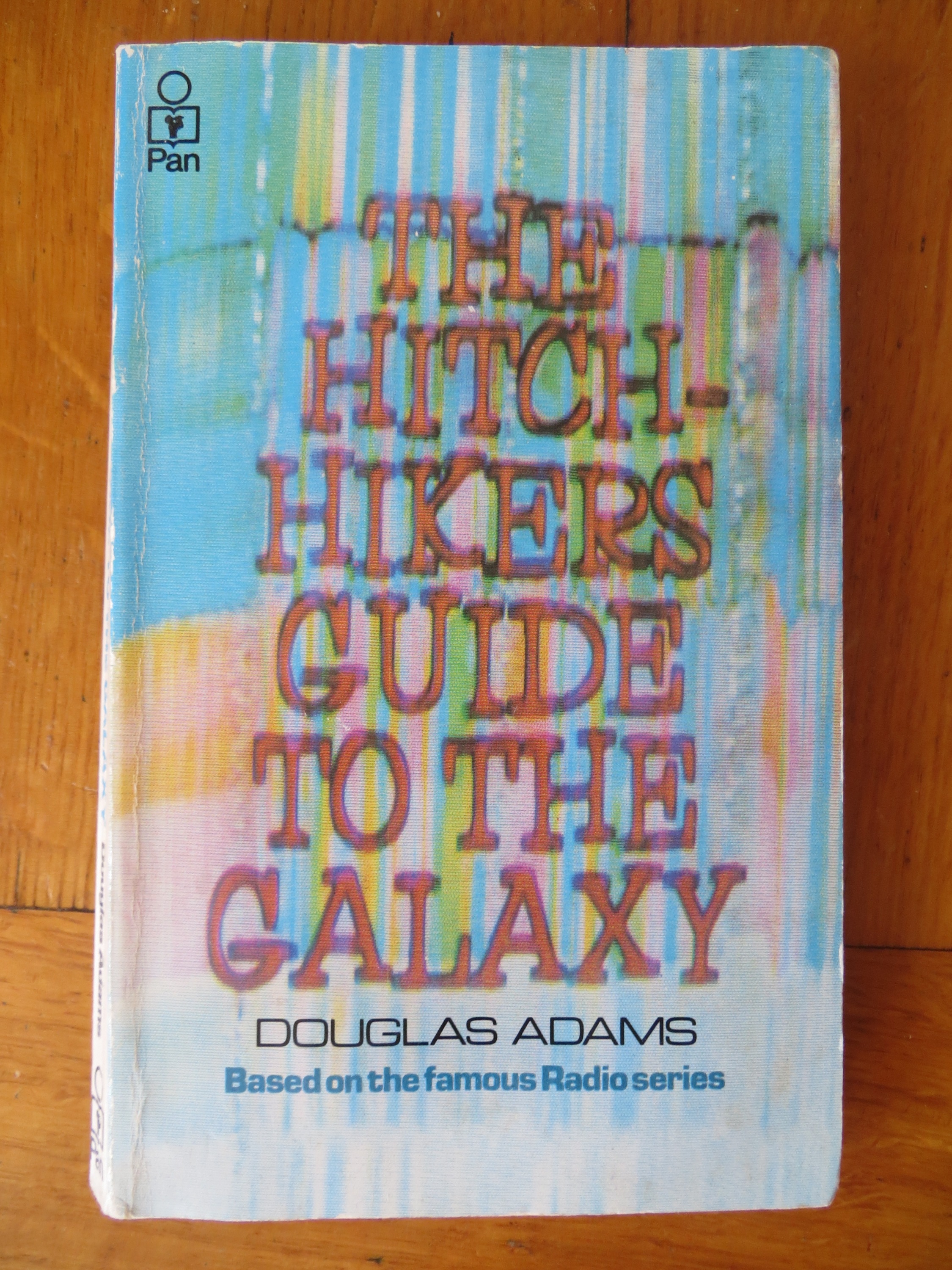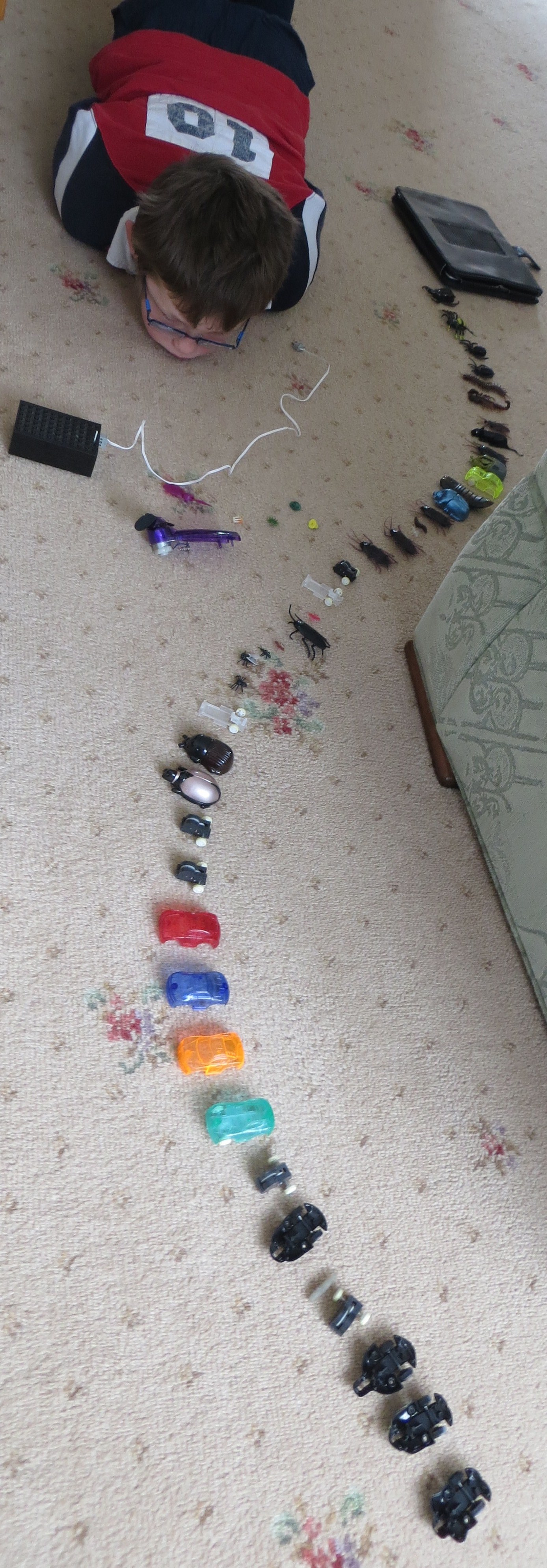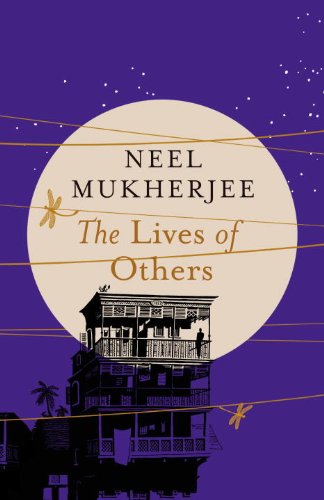
Stevie Smith said differences between male writers and female writers were more obvious if the writing was bad. I’m a big fan of Stevie Smith, but I’m not sure that’s true. Reading blurs and breaks down boundaries and allows us to access the imagined unknown, and to experience many different lives (to paraphrase a line from one of George RR Martin’s Game of Thrones books, the man who reads has many lives, the one who does not lives only once). When I’m reading a book I love, I could be anyone, and so could the writer; there’s only the story. (Perhaps that’s what Stevie Smith meant.)
So why single out male writers for a list like this? Pretty much, to redress the balance – I’ve already blogged about women writers who changed my life (parts I and II – III will come at some point), so it seems only fair.
The male writers who have changed my life
This is a list of writers rather than of books, so the writers I have included have written more than one novel that has made a big impression on me. Hence some major omissions, of which the biggest is The Catcher in the Rye, which I discovered at the perfect time, as a lonely teen in the school library. Also, Truman Capote’s Breakfast at Tiffany’s, which features one of my all-time favourite heroines.
I haven’t touched on non-fiction (Al Alvarez would definitely be on that list, and Brendan Behan’s Borstal Boy – ‘f*** the begrudgers’ is a useful mantra) or poetry (that would be a long one, with a starring role for T S Eliot and, of course, my OH Ian Pindar).
Douglas Adams. Hitchhiker’s Guide and The Restaurant at the End of the Universe have soaked into my unconscious. I still often find myself thinking about the uniquely biroid lifestyle, or the first ten thousand years being the worst, the second ten thousand being the worst too, and after that, going into a bit of a decline. Or it being too late to worry that you left the gas on when you’re about to watch the universe boil away into nothingness. Or the mark of civilisation being the question, ‘Where shall we have lunch?’ Or about how you might feel safe on an alien spaceship if only you could see a small packet of cornflakes amid the piles of Dentrassi underwear. And so on.
William Gibson. Discovered mid-90s, browsing in a bookshop. The inventor of cyberspace, no? The kind of cyberspace we’re still evolving towards – a virtual simulacrum of the world we live in, with criminals, hustlers, defended power bases and ghosts. And Molly with the retractable claws… I often think of William Gibson when I see a wasp’s nest, or read about the hyper-rich – he’s brilliant on the dehumanising effect of immense wealth.
William Gibson introduced me to Cornell boxes – years later I saw some for myself and was stunned by how beautiful they were. Sometimes when I see my son, who has autism, set out his toys, I think of those Cornell boxes. There’s something very precise about the spacing and arranging, something numinous, even if I don’t understand it.
I once tried to write an imitation William Gibson story. It wasn’t very good, as my boyf at the time reluctantly, but rightly, pointed out.
Ian Fleming. Mary Goodnight is the reason I wear Chanel no 5 (though Marilyn Monroe also has something to do with it.) A couple of years ago I wrote a short story called What would a Bond girl do? The story probably wasn’t up to much, but I still like the title.
Around the same time I read the Bond books (early to mid teens) I read a lot of Dick Francis novels, but all I really remember from them is the description of a hungry jockey griddling himself a steak. Also, that 80 hours into learning to be a pilot is the most dangerous time, because you begin to think you can do it and forget to be afraid, which maybe applies to a certain stage of learning in other areas too.
Raymond Chandler. Especially The Big Sleep. Love those slangy, cynical, man-of-the-world cadences – the beaten-up toughness of it. Love the old rich man with the orchids, the sharp dialogue, the ending. When I first read it I didn’t really get a lot of it, but it didn’t matter. And now I’m thinking of Bogart and Bacall. Btw, there is a brilliant essay on how Humphrey Bogart became Humphrey Bogart in a collection of essays by Louise Brooks, Lulu in Hollywood (if you read the book, look out for Charlie Chaplin and the jolly orgy involving paint).
Ernest Hemingway. My dad likes Hemingway and once told me The Old Man and the Sea was his favourite novel. Hemingway was also on an improving reading list that my English teacher gave me, and I read a fair bit aged 16 to 18 and loved it – For Whom the Bell Tolls, The Sun Also Rises. The short story Hills Like White Elephants has stayed with me – it catches so clearly the sterile feeling of being with a lover when there is almost nothing more to say. Read The Killers recently – eerily brilliant.
Patrick Gale. I read my first Patrick Gale (Notes from an Exhibition) last year and could happily spend the next working through everything else he’s written. Look out for A Place Called Winter, out next month – I was lucky enough to receive a proof copy.
Patrick Gale’s novels give me a feeling of space and light: new people, new territories, illumination. He’s also a damn good storyteller. When his characters do unexpected things, or have unexpected and sometimes terrible things happen to them, you’re left thinking – yes, that’s how it is, that’s the truth of it. He knows what makes people tick.

Raymond Carver. Bought mid-90s, collected short stories, after Short Cuts came out. Shining example of what can be achieved by being lean and spare. What We Talk About When We Talk About Love stays with me – an inspired sideways glance at the question of what love is, up there with James Joyce’s The Dead. Also the one about the three men who go fishing and find a body. And Cathedral.
James Ellroy. How do you find writers you love? Movie adaptations don’t hurt. I bought LA Confidential after seeing the film. Read the first page, thought what’s a shiv? Soon found out, read a load more. Big, ambitious books with amoral heroes – he shares some qualities with George RR Martin: an eagle eye for the workings of power; a desire to tell stories about bad people with a bit of good in them, and good people with a bit of bad in them; and an interest in twisted families.
George R R Martin. Nearly at the end of season 4 of Game of Thrones as I write. George RR Martin has a spectacular ability to create real people in a fantasy world. Intensely believable and often terrifying. Grim to think that pretty much any of the dark stuff in the books has really happened sometime, somewhere – and a relief when humanity’s more redemptive qualities come through: courage, integrity, resourcefulness, self-sacrifice, a sense of humour in the face of overwhelming odds, loyalty, vision, love.
Neel Mukherjee can do it all – his fiction is funny, profound, vivid, sweeping, and revelatory about how and why people do the things they do. After I’d read The Lives of Others I felt I understood more about why terrorist atrocities happen than when I started – it was an education. I’m very much looking forward to his next. The extract that appeared in January’s Granta was startlingly, shiver-inducingly spooky.
D H Lawrence. I read lots of DHL aged 16-21. (He was on the improving reading list too, and, later on, the degree syllabus.) The end of Sons and Lovers is one of my favourite endings of any novel – more affecting, to me, than the arguably more celebrated ending of The Great Gatsby. One of the endings of Neel Mukherjee’s The Lives of Others hits the same note: poignancy and exile, moving on and out into the world. And I like Ursula at the beginning of Women in Love, like a daffodil with all the growth going on underground, before the shoots come up for everybody else to see – and Mrs Morel with the lilies in the moonlight, her brute husband left behind indoors.
OK, so that’s my list. I know as soon as I post this I’ll be troubled by omissions – other names and books are occurring to me as I type, clamouring for inclusion – but you have to start somewhere…
Swift homage to Tolkien, in passing – The Lord of the Rings had pride of place on the bookshelf in my mum’s house and we painstakingly taped the radio adaptation. My OH recently acquired a bit of the recording and it’s still brilliant.
As a girl in the 70s I had dungarees with workmen’s tools embroidered on them and Richard Scarry books illustrated with all the primary colours. If I was a kid these days, I’d have been much more likely to spend my days in a pink fairy costume reading a pink book about pink princesses. I really, really wanted to be a fairy, ideally called Lavinia – I definitely wasn’t a tomboy – so probably I would have been quite happy with this, at the time anyway.

Looking back, I’m glad that my 1970s childhood didn’t indulge my pink princess tendencies, and that I read Richard Scarry as well as Beatrix Potter, Enid Blyton and Edith Nesbit.




